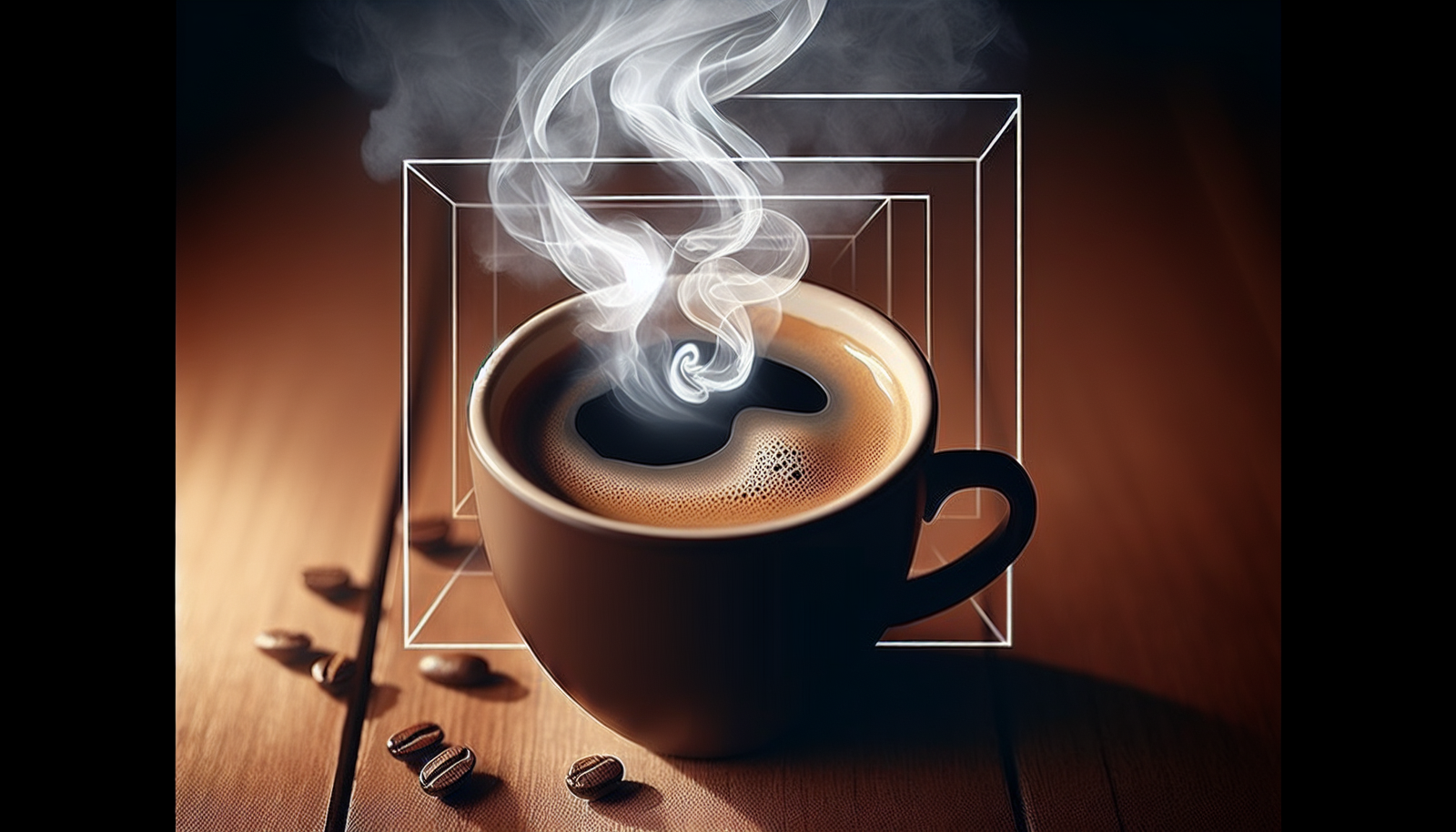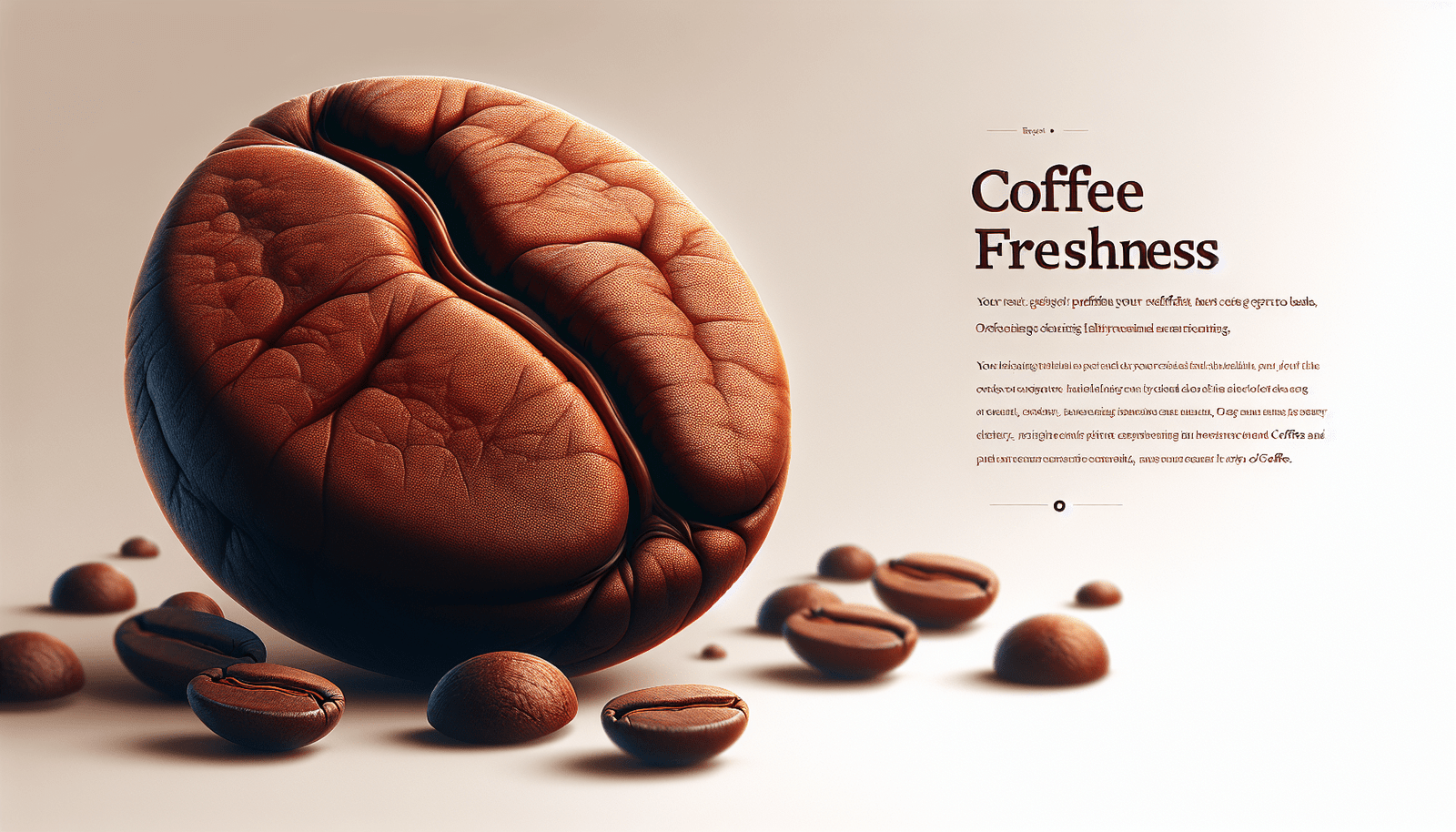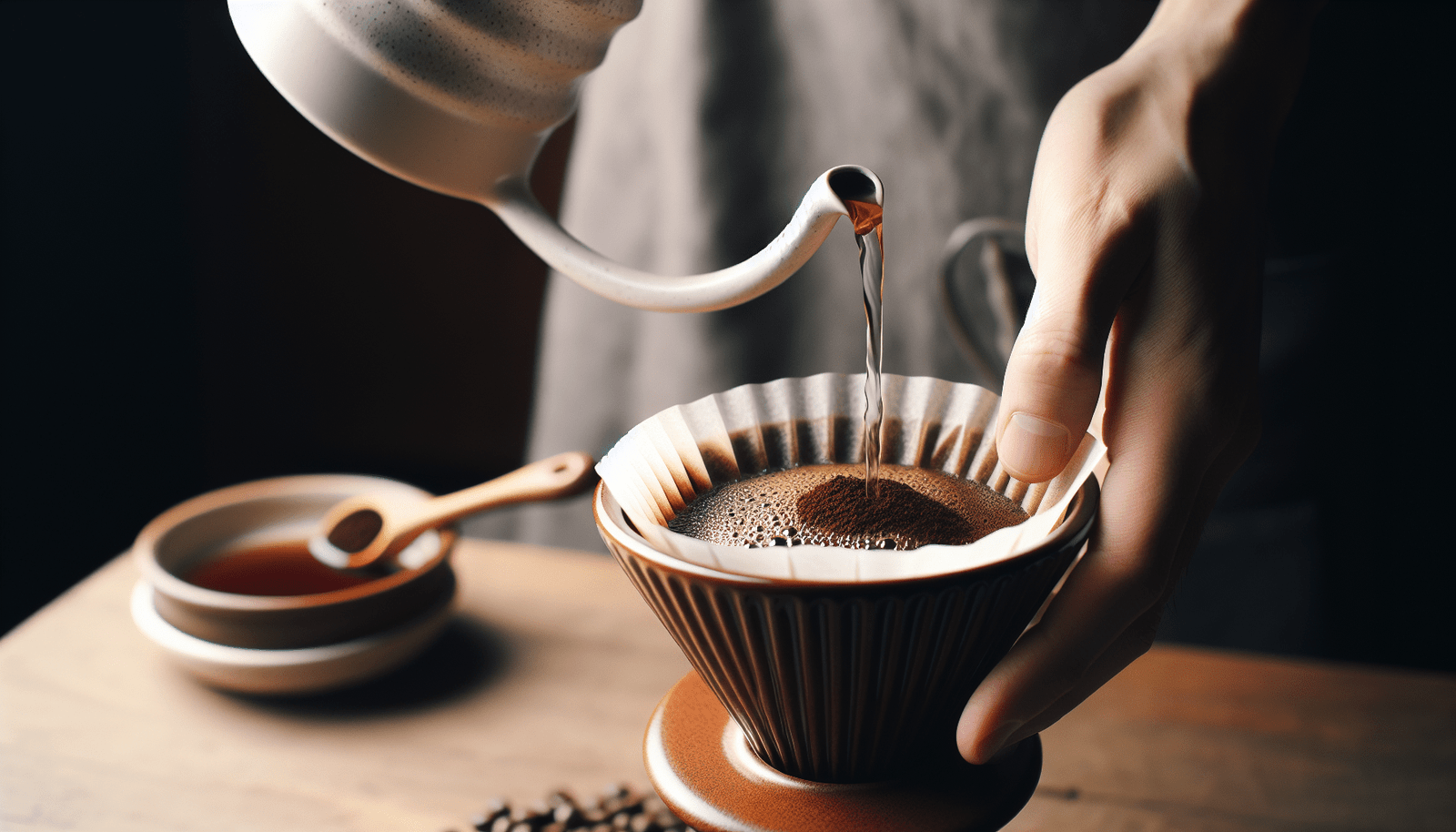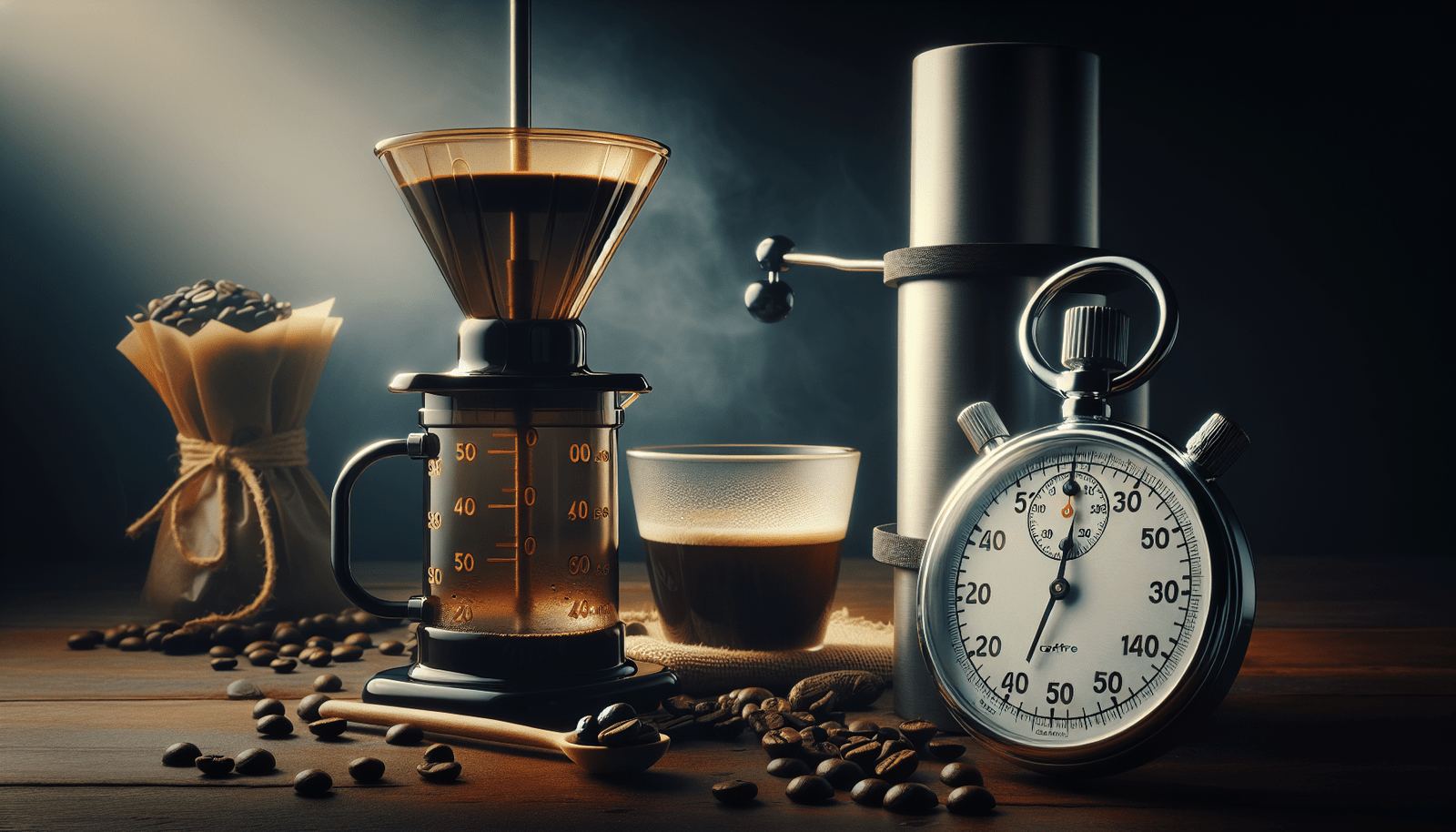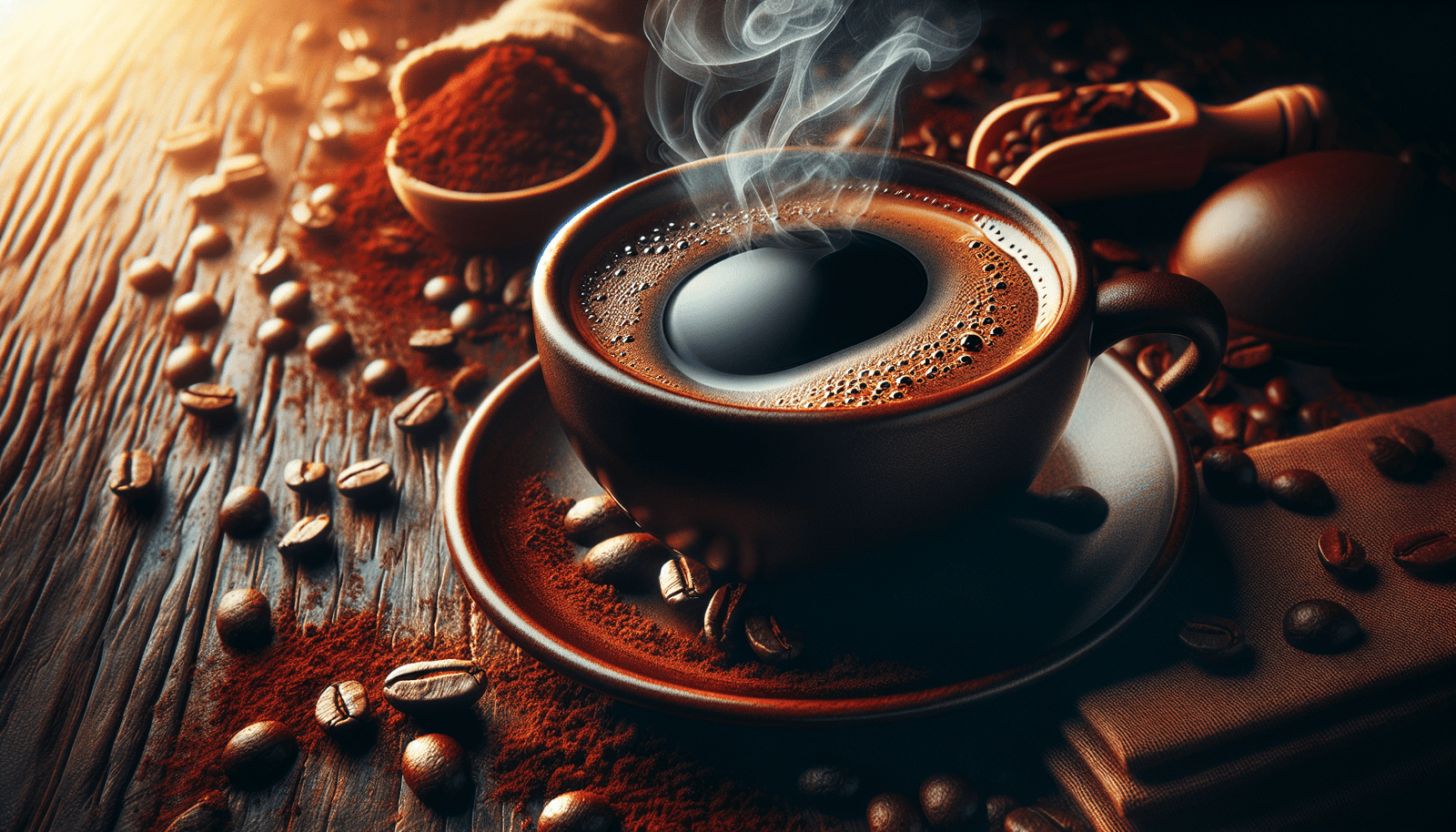You’re standing in your kitchen, groggily reaching for the coffee maker to kickstart your day. As you scoop the grounds into the filter, a question pops into your mind: “How long should I brew coffee for optimal flavor?” It’s a common query among coffee lovers seeking the perfect cup, and one that holds the key to unlocking a robust and satisfying taste. In this article, we’ll explore the factors that contribute to the ideal brew time, providing you with the knowledge to savor every sip of your morning brew.
Factors Affecting Coffee Brewing Time
When it comes to brewing coffee, several factors come into play that can affect the brewing time. These factors include the type of coffee beans, the grind size, the water temperature, and the water-to-coffee ratio. By understanding how each of these factors influences the brewing process, you can optimize your brewing time to achieve the perfect flavor and strength.
Coffee Beans
The type and quality of the coffee beans you use greatly impact the brewing time. Arabica coffee beans, known for their smooth and nuanced flavors, typically have a faster brewing time compared to Robusta beans, which are more bold and intense. Single origin beans may also have a different brewing time compared to blends. It’s essential to consider the characteristics of the coffee beans you’re using to determine the optimal brewing time.
Grind Size
The grind size of your coffee beans plays a crucial role in the brewing process. A finer grind size will result in a shorter brewing time, while a coarser grind size will require a longer brewing time. This is because finer particles extract more quickly, allowing the flavors to be released into the water, whereas coarser particles take longer to extract. Adjusting the grind size according to your brewing method is essential to achieve the desired strength and flavor.
Water Temperature
The water temperature when brewing coffee also affects the brewing time. Generally, the ideal water temperature for brewing coffee is between 195-205°F (90-96°C). If the water is too hot, it can lead to over-extraction and a bitter taste. On the other hand, if the water is too cold, it may not extract enough flavor from the coffee grounds. Maintaining the proper water temperature is crucial for achieving optimal flavor during the brewing process.
Water-to-Coffee Ratio
The ratio of water to coffee grounds is another factor to consider when determining the brewing time. Different strength preferences may require different ratios. The general guideline is to use a coffee-to-water ratio of 1:15 to 1:18, depending on your taste preferences. This means for every gram of coffee, you should use 15 to 18 grams of water. Adjusting the water-to-coffee ratio can significantly impact the brewing time and the overall flavor of your coffee.
Different Brewing Methods and Brewing Times
The brewing method you choose can significantly impact the brewing time. Here, we will explore some popular brewing methods and their associated brewing times.
Drip Brewing
Drip brewing is one of the most common methods of brewing coffee. This method involves pouring hot water over a filter containing coffee grounds, allowing the water to drip through and extract the flavors. The average brewing time for drip brewing is around 4-6 minutes. However, this can vary depending on factors such as the grind size, water temperature, and the desired strength of the coffee.
French Press
French press brewing involves steeping coffee grounds in hot water and pressing them down with a plunger to separate the grounds from the brewed coffee. The brewing time for a French press is typically around 4-5 minutes. However, the steeping time can be adjusted according to your taste preferences. It’s important to note that the relatively longer brewing time of a French press can lead to a stronger and bolder flavor profile.
Espresso
Espresso brewing utilizes high-pressure and finely ground coffee to extract intense flavors in a short amount of time. The brewing time for an espresso shot typically ranges between 20-30 seconds. This shorter brewing time results in a concentrated and rich flavor profile. Espresso brewing requires precise control over the grind size, water temperature, and tamping pressure to achieve optimal flavor extraction.
Aeropress
The Aeropress is a versatile brewing method that allows for various brewing techniques, resulting in different brewing times. The average brewing time for an Aeropress ranges between 1-2 minutes. However, by adjusting factors such as the grind size, water temperature, and steeping time, you can experiment and personalize the brewing time to suit your taste preferences.
Pour Over
Pour over brewing involves slowly pouring hot water over coffee grounds in a filter, allowing the water to drip through and extract the flavors. The brewing time for a pour-over method can vary depending on factors such as the grind size, pouring technique, and desired strength. On average, pour-over brewing takes around 2-4 minutes. However, this time can be adjusted to achieve the desired flavor and strength of your coffee.
The Role of Extraction
Extraction is a critical component of the brewing process that directly influences the flavor and characteristics of your coffee. Understanding the role of extraction can help you achieve the perfect balance of flavors in your brew.
Extraction and Coffee Flavor
Extraction refers to the process of dissolving the soluble compounds in coffee grounds to extract their flavors. During brewing, hot water comes into contact with the coffee grounds, causing the flavors to be extracted from the grounds into the water. The length of the brewing time directly affects the level of extraction, which subsequently impacts the flavor of the coffee. A shorter brewing time may result in a milder flavor, while a longer brewing time can produce a stronger and more robust flavor profile.
Over-Extraction
Over-extraction occurs when the coffee is brewed for too long or with water that is too hot. This can lead to bitter and unpleasant flavors in the coffee. Over-extracted coffee often tastes excessively strong and may have a harsh aftertaste. It is crucial to monitor the brewing time and ensure that it does not exceed the optimal range to avoid over-extraction.
Under-Extraction
Under-extraction, on the other hand, happens when the coffee is not brewed for a sufficient amount of time or with water that is too cold. Under-extracted coffee tends to taste weak, lacking in flavor and aroma. It may have a sour or acidic taste, which is not desirable for most coffee drinkers. Achieving the optimal brewing time is vital to extract the desired flavors and characteristics from the coffee beans.
Determining Brewing Time for Your Taste
Finding the perfect brewing time for your taste preferences can be a personal journey. Here are some tips to help you determine the ideal brewing time for your coffee.
Taste Preferences
The first step in determining the brewing time for your taste is to consider your preferences. Do you enjoy a mild and mellow cup of coffee, or do you prefer a strong and bold flavor? Understanding your taste preferences will guide you in adjusting the brewing time to achieve the desired strength and flavor profile.
Experimentation
Experimenting with different brewing times can help you discover the flavors that best suit your palate. Start by brewing your coffee for the recommended brewing time, and then gradually adjust the time up or down to see how it affects the flavor. Remember to take note of the changes in flavor as you experiment with different brewing times, allowing you to fine-tune your brewing process.
Using a Timer
Using a timer is a simple and effective way to ensure consistency in your brewing time. Start by brewing your coffee for a specific duration, such as 4 minutes, and then taste the result. If you find that the flavor is not to your liking, you can adjust the brewing time accordingly. By using a timer, you can replicate the preferred brewing time consistently, resulting in a consistently enjoyable cup of coffee.
Understanding Coffee Strength and Flavor
Coffee strength and flavor are two distinct characteristics that contribute to the overall coffee drinking experience. Understanding the differences between these aspects can help you adjust your brewing time to achieve the desired balance.
Coffee Strength
Coffee strength refers to the concentration of coffee in a cup. It is often associated with the intensity of flavors and the perceived boldness of the coffee. The strength of coffee is influenced by factors such as the coffee-to-water ratio, brewing time, and the brewing method. By adjusting the brewing time, you can control the strength of your coffee. A longer brewing time generally results in a stronger cup, while a shorter brewing time produces a milder flavor.
Coffee Flavor
Coffee flavor encompasses the taste, aroma, and overall sensory experience of the brewed coffee. It is influenced by factors such as the origin and quality of the coffee beans, the roast level, and the brewing method. The brewing time plays a crucial role in extracting the desired flavors from the coffee grounds. By adjusting the brewing time, you can enhance specific flavors or achieve a well-balanced flavor profile in your cup of coffee.
Balancing Strength and Flavor
Finding the right balance between strength and flavor is essential for a satisfying coffee experience. Some coffee drinkers prefer a strong and robust cup, while others enjoy a more delicate and nuanced flavor profile. By adjusting the brewing time, you can fine-tune the strength and flavor of your coffee to suit your personal preferences. Experimenting with different brewing times can help you strike the perfect balance and create a cup of coffee that caters to your taste.
Optimum Brewing Times for Common Coffee Beans
Different types of coffee beans may require varying brewing times to achieve their optimal flavor. Here’s a general guideline for the brewing times of common coffee beans:
Arabica
Arabica coffee beans, known for their lighter and more complex flavors, generally require a shorter brewing time. Brewing Arabica coffee for approximately 3-4 minutes can help highlight its delicate and nuanced characteristics, producing a well-balanced cup of coffee.
Robusta
Robusta coffee beans, with their intense and robust flavors, typically benefit from a slightly longer brewing time. Brewing Robusta coffee for around 4-6 minutes can help extract its bold flavors, resulting in a stronger and more full-bodied cup.
Blends
Coffee blends, which often combine different types of beans, require a brewing time that strikes a balance in highlighting each component. A brewing time of approximately 3-5 minutes is a good starting point for most coffee blends. However, it’s important to experiment and adjust the brewing time according to the specific blend to achieve the desired flavor profile.
Single Origin
Single origin coffees, sourced from a specific region or farm, often have unique flavor characteristics. The brewing time for single origin coffees can vary depending on the particular beans and their desired flavor profile. It is recommended to follow the brewing time guidelines provided by the roaster or experiment to find the optimal time that brings out the best flavors in the coffee.
Adjusting Brewing Time for Different Grind Sizes
The grind size of your coffee beans directly affects the brewing time, as finer grinds extract more quickly than coarser grinds. Here’s how to adjust the brewing time for different grind sizes:
Coarse Grind
Coarse grind coffee, commonly used in brewing methods such as French press and cold brew, requires a longer brewing time to extract flavors. The larger coffee particles necessitate more time to release their flavors into the water. Adjusting the brewing time to approximately 4-8 minutes for a coarse grind can help achieve a well-extracted and flavorful cup of coffee.
Medium Grind
Medium grind coffee is versatile and suitable for various brewing methods, including drip brewing and pour over. The brewing time for a medium grind usually ranges between 3-5 minutes. This allows for a balanced extraction, resulting in a flavorful cup of coffee.
Fine Grind
Fine grind coffee, commonly used in espresso brewing, requires a shorter brewing time due to the smaller coffee particles. The increased surface area allows for quicker extraction of flavors. For espresso brewing, a brewing time of around 20-30 seconds is recommended to achieve a concentrated and rich flavor profile.
Temperature Recommendations for Brewing
The water temperature when brewing coffee is crucial for achieving optimal flavor extraction. Here are some temperature recommendations and their effects on the brewing process:
Ideal Brewing Temperature
The ideal brewing temperature for coffee is generally between 195-205°F (90-96°C). This temperature range allows for optimal extraction of flavors from the coffee grounds without causing over-extraction or bitterness. Maintaining the water temperature within this range ensures that the flavors are effectively extracted, resulting in a well-balanced and enjoyable cup of coffee.
Effects of Water Temperature
Water temperature plays a significant role in the brewing process. If the water temperature is too hot, it can lead to over-extraction, resulting in a bitter and unpleasant taste. On the other hand, if the water temperature is too cold, it may not extract enough flavor from the coffee grounds, resulting in a weak and lackluster cup of coffee. It is essential to control and maintain the water temperature within the recommended range to achieve optimal flavor extraction.
Water-to-Coffee Ratio Guide
The ratio of water to coffee grounds is a fundamental aspect of brewing coffee. Here’s a guide to understanding the water-to-coffee ratio and its implications:
Golden Ratio
The golden ratio for brewing coffee is often considered to be 1:15 to 1:18, which means using 1 gram of coffee for every 15 to 18 grams of water. This ratio provides a good starting point for achieving a balanced cup of coffee. However, it’s important to note that personal preferences may vary, and adjusting the ratio according to your taste can help you achieve the desired strength and flavor.
Strength Preferences
The water-to-coffee ratio directly impacts the strength of the coffee. If you prefer a stronger cup, you can increase the amount of coffee or decrease the amount of water. Conversely, if you prefer a milder cup, you can decrease the amount of coffee or increase the amount of water. Experimentation and adjustments to the water-to-coffee ratio can help you find the perfect balance for your taste preferences.
Compensating for Other Factors
In some cases, compensating for other factors, such as a coarser grind size or a longer brewing time, may require adjusting the water-to-coffee ratio. For example, if you are using a coarser grind size, you may need to increase the amount of coffee to ensure that enough flavors are extracted within the given brewing time. Similarly, if you are brewing for a longer duration, you may need to adjust the water-to-coffee ratio to maintain the desired strength and balance.
Tips for Optimal Brewing Time
To achieve the best possible brewing time and flavor, consider the following tips:
Freshly Roasted Coffee
Using freshly roasted coffee can significantly impact the flavor and quality of your brew. Coffee beans start to lose flavor and aromatics once they are roasted, so it’s important to use freshly roasted beans for the best results. Look for roast dates on the packaging and try to use your beans within two to four weeks of the roast date for optimal flavor extraction.
Clean Equipment
Keeping your brewing equipment clean is essential for achieving a consistent and flavorful brew. Residual coffee oils and buildup can affect the taste of your coffee, so it’s important to regularly clean your equipment, including coffee grinders, brew baskets, and filters. Regular maintenance ensures that your coffee is brewed at its best quality, allowing you to enjoy the optimal flavor.
Proper Storage
Properly storing your coffee beans can help preserve their freshness and flavors. It’s best to store your beans in an airtight container, away from light, heat, and moisture. Avoid storing your coffee in the refrigerator or freezer, as the frequent temperature changes can affect the quality of the beans. By storing your beans correctly, you can ensure that they retain their flavors and aromatics, enhancing the overall brewing time and flavor.
In conclusion, achieving the optimal brewing time for your coffee involves considering various factors such as the type of coffee beans, grind size, water temperature, and water-to-coffee ratio. Each of these factors plays a significant role in extracting the desired flavors and characteristics from the coffee grounds. By understanding the relationship between these factors and experimenting with different brewing times, you can personalize your brewing process and create a cup of coffee that perfectly suits your taste preferences. Remember to consider the strength and flavor balance, adjust the brewing time for different coffee beans and grind sizes, and follow temperature and water-to-coffee ratio recommendations. With these considerations in mind, you’ll be on your way to brewing coffee that brings out the best flavors and aromatics in every cup.
